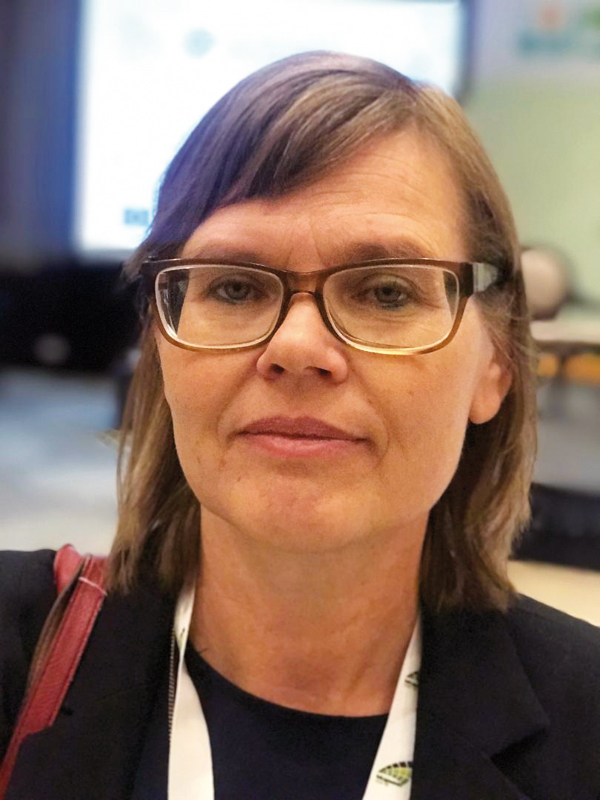

The European Union (EU) has pledged to support the Sultanate, among other member states of the GCC bloc, in their efforts to rein in galloping electricity demand growth through the implementation of energy efficiency and clean energy programmes.
The offer of assistance came during an Executive Workshop on Energy Efficiency conducted by the EU-GCC Clean Energy Network in collaboration with Petroleum Development Oman (PDO) in Muscat earlier this week.
Speaking at the event, a high-level EU official described ongoing energy cooperation between the European Union and the GCC, encompassing not only energy efficiency but also clean energy policies, as an objective of “strategic importance” to the EU.
Taina Sateri (pictured), Trade Counsellor of the EU Delegation to the UAE, also praised the Sultanate’s “huge efforts and initiatives in various clean energy sectors”.
“I am also pleased to note how Oman and other GCC countries are embarking on a clean energy transition pathway which targets a more sustainable, efficient and cost-effective methods for using energy. International cooperation and partnerships are a key success factor,” Sateri noted in opening remarks at the two-day workshop.
Present at the opening were top officials from the Ministry of Oil & Gas, the Authority for Electricity Regulation Oman, PDO, Oman Power and Water Procurement Company, Sultan Qaboos University, and The Research Council, as well as representatives of a number of stakeholder institutions in the public and private sectors.
In her address, Sateri traced the EU’s laudable success in reducing energy consumption — learnings that would be made available to Oman in support of its energy conservation strategies, she said.
“On energy efficiency, the European Union is keen to share with Oman and the GCC region the lessons learnt and best practices on energy efficiency standards, policies and best practice technologies and on promoting research cooperation.
EU countries have implemented energy efficiency measures in all sectors, and these have contributed considerably to a decrease in EU energy consumption. With legislation and ambitious programmes we expect considerable benefits in the future,” the official stated.
In the Sultanate, the Authority for Electricity Regulation is spearheading efforts promoting the efficient use of electricity through initiatives aimed at, among other goals, eliminating wastage, rationalising consumption, and advocating best practices and standards.
In parallel with these objectives, the Authority is also formulating strategies and programmes designed to promote energy efficient building design and construction, limit the import and distribution of household electrical appliances that do not comply with minimum energy efficiency standards, and stimulate the growth of an energy services market.
The EU’s dependence on the Gulf bloc for a sizable share of its energy requirements makes energy cooperation between the two sides a strategic imperative, according to Sateri.
“The countries of the GCC play a key role in the EU’s security of supply. Currently these countries together represent the third largest supplier of crude oil to the EU. GCC countries belong to the largest suppliers of liquefied natural gas (LNG) to the EU and provide half of our global LNG import,” she noted.
At the same time, the EU is putting in place ambitious policies advocating the sustainable use of energy while addressing climate change concerns as well, said Sateri.
She cited in this regard the EU’s 2020 and 2030 strategies, as well as the Clean Energy for All European Package, adopted by the Commission in November 2016.
Also as part of the EU’s advocacy of clean energy and energy sustainability, an EU-GCC Clean Energy Network has been launched, according to the official.
The Network serves as a catalyst for the development of cooperation on clean energy, policy and technology among various stakeholders in the EU and GCC countries.
“The EU-GCC partnership represent both an opportunity for the EU to share with our GCC partners our policies and technologies of sustainable development and decarbonisation as well as an opportunity for these countries to reduce their overwhelming dependence on hydrocarbons,” said Sateri. “The GCC should capitalise on the huge opportunities that clean energy technologies are offering to undertake a smooth but courageous energy transition.”
She stressed in this regard the need for GCC governments and policymakers to set up a policy framework that supports investments in clean energy technologies, helping governments to minimise costs and achieve their national targets. Gulf states also need to clarify the national energy institutional framework, reform current fossil fuel subsidies, create a transparent energy tariff regime, and build local capacities including policymakers, regulatory authorities, standardisation organisations and other bodies.
Oman Observer is now on the WhatsApp channel. Click here



